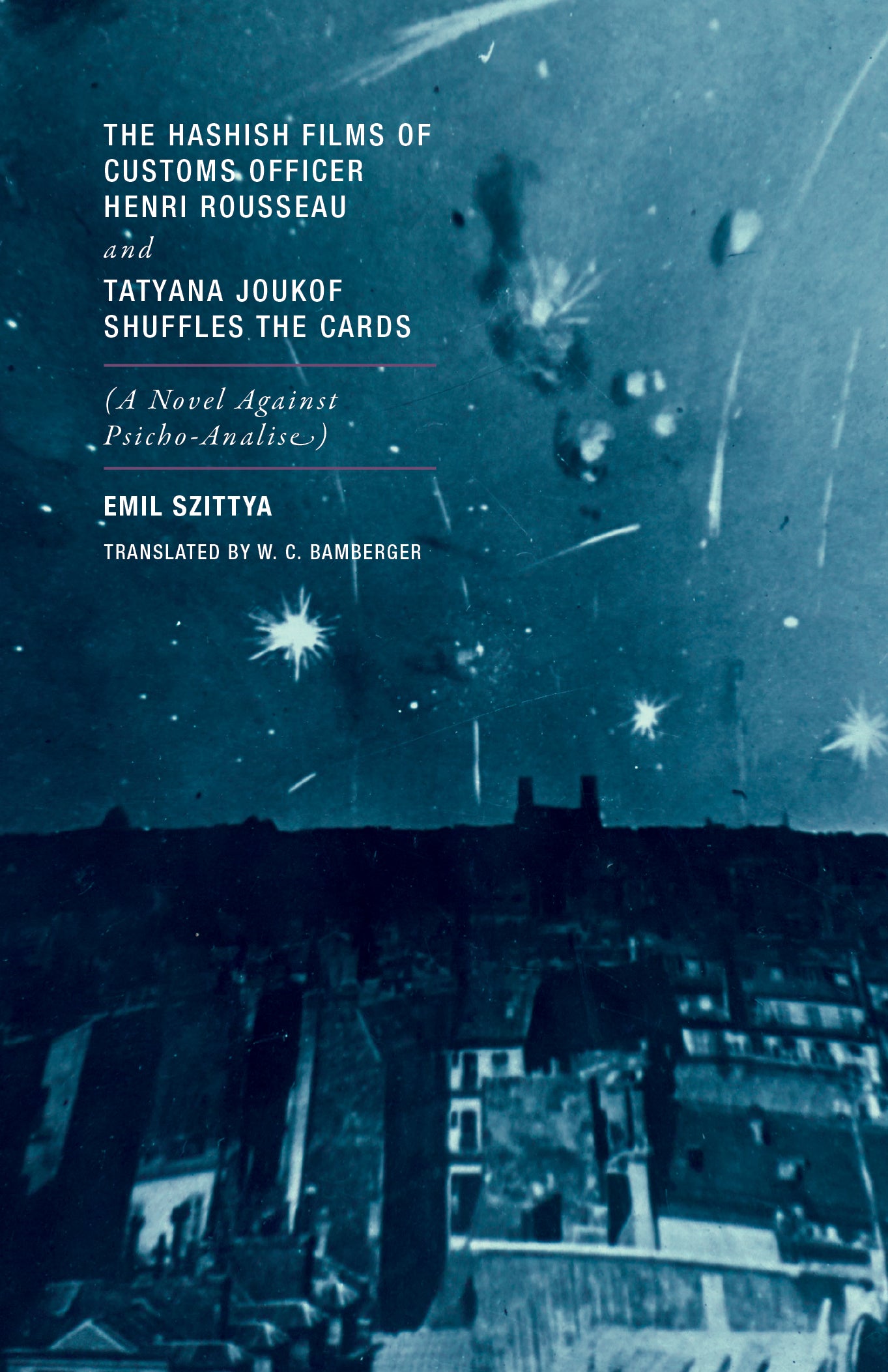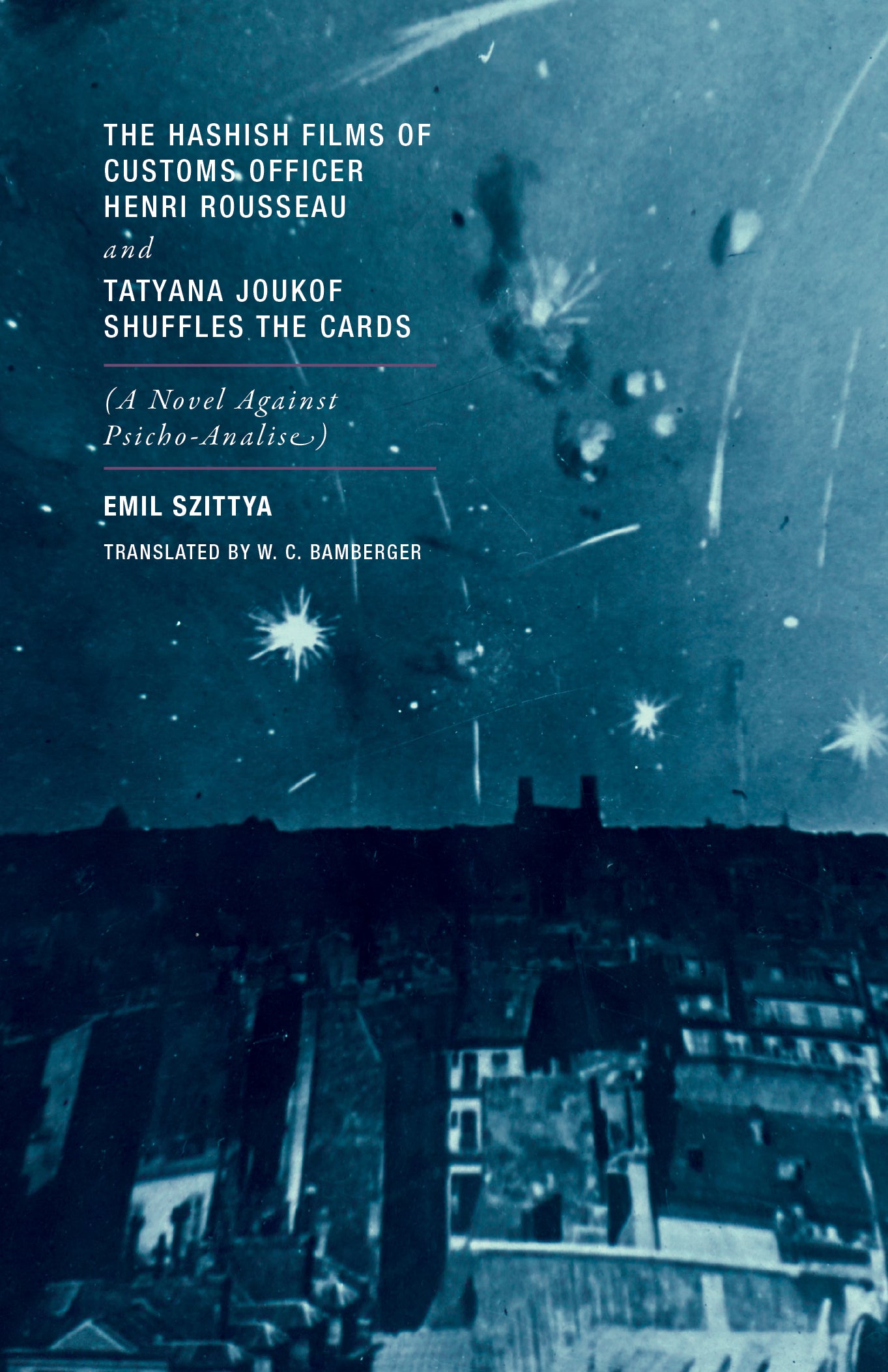The Hashish Films of Customs Officer Henri Rousseau and Tatyana Joukof Shuffles the Cards (A Novel against Psicho-Analise)
The Hashish Films of Customs Officer Henri Rousseau and Tatyana Joukof Shuffles the Cards (A Novel against Psicho-Analise)
Emil Szittya
Couldn't load pickup availability
Translated, with an introduction, by W. C. Bamberger / March 2025 / 4.5 x 7, 80 pp. / 978-1-962728-04-1
Emil Szittya’s earliest known work of significance, The Hashish Films of Customs Officer Henri Rousseau and Tatyana Joukof Shuffles the Cards, was published in German in Budapest in 1916, yet it portrays the hallucinatory Paris the author had chosen for a temporary home at that time. It is a strange literary work as international and untethered as the author himself had been, a symbolic map of Montparnasse and memory that incorporates the visual world of the painters around him. It is a notational, hashish-infused dream diary in which Szittya plays with childhood legends and gender roles as he restlessly sifts through poverty and the underworld, splicing together and severing apart synesthetic sensations and visions.
Prose poems, for lack of a better word, Szittya’s “hashish films” were almost lost to time but can be recognized as sitting alongside the work of such contemporaries as Blaise Cendrars and Guillaume Apollinaire. They nevertheless read like an anomaly, reflecting the author’s lifelong refusal to ally himself with any literary or artistic movement.
Emil Szittya was the most established pseudonym of the Hungarian-born Adolf Schenk (1886–1964). A vagabond in both his writing and his practice, his life intersected with everyone throughout Europe in the years of high modernism, whether he was setting up a publishing house with Blaise Cendrars in Paris, crossing paths with Lenin and Trotsky in Zürich, seeing the birth of Dada in the Cabaret Voltaire with his friends Hugo Ball and Emmy Hennings, or writing the first books on artists such as Chaïm Soutine and Marc Chagall. Szittya settled in Paris later in life, fighting in the Resistance during the war and working at the café Les Deux Magots before dying of tuberculosis. His many works, in Hungarian, German, and French, include novels, essays, art criticism, and a history of suicide.
Press
"An unusual trip worth taking."
—M. A. Orthofer, The Complete Review


